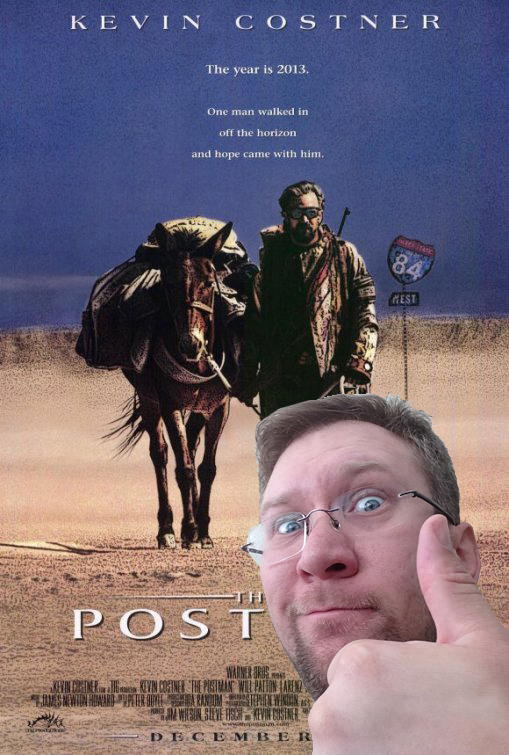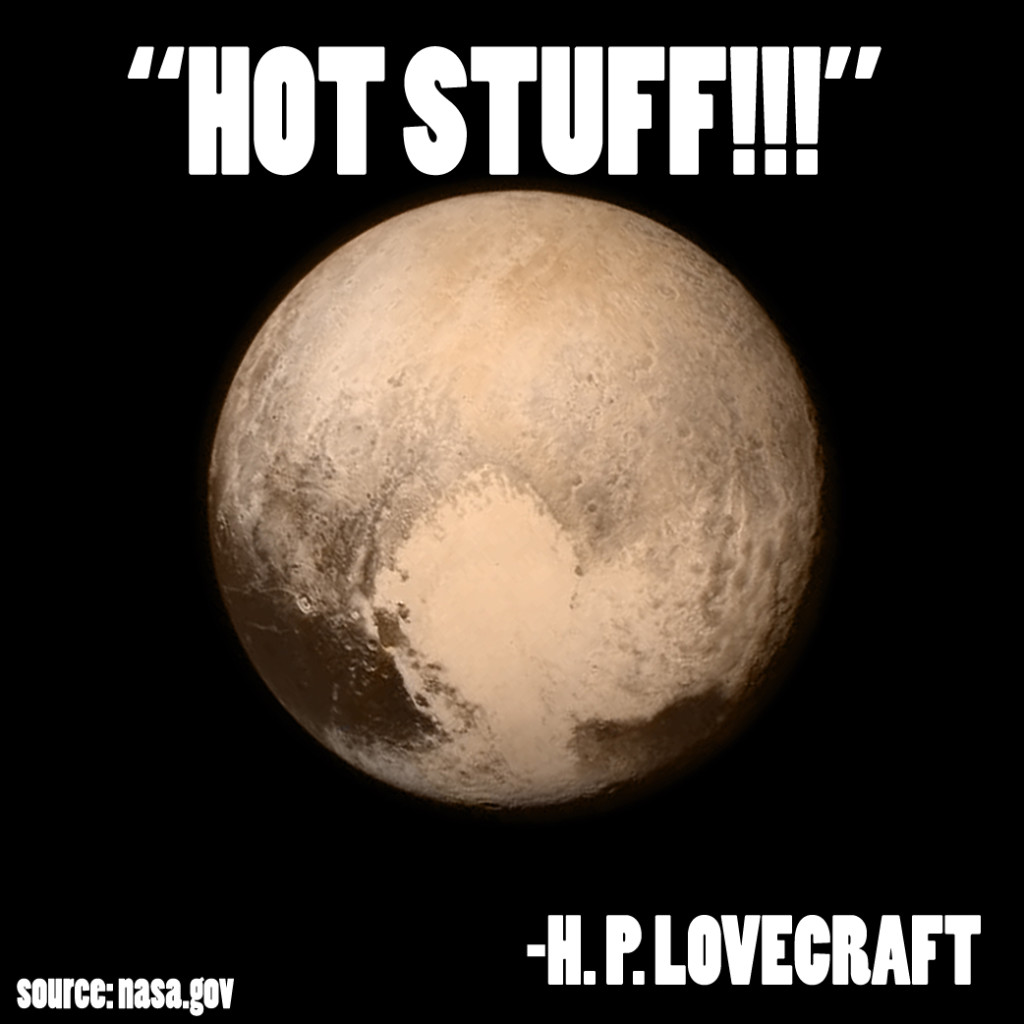A Living Thing Come to Light – Lovecraft, Pluto, and the Blending of Science and Art
Podcast: Play in new window | Download
“Those wild hills are surely the outpost of a frightful cosmic race––as I doubt all the less since reading that a new ninth planet has been glimpsed beyond Neptune, just as those influences have said it would be glimpsed. Astronomers, with a hideous appropriateness they little suspect, have named this thing ‘Pluto’. I feel, beyond question, that it is nothing less than nighted Yuggoth––and I shiver when I try to figure out the real reason why its monstrous denizens wish it to be known in this way at this especial time. I vainly try to assure myself that these daemoniac creatures are not gradually leading up to some new policy hurtful to the earth and its normal inhabitants. … Sometimes I fear what the years will bring, especially since that new planet Pluto has been so curiously discovered.”
-H. P. Lovecraft, from “The Whisperer In the Darkness”
What made H. P. Lovecraft a “good” writer was not his ability, no doubt. Mechanically, he was not particularly skilled beyond a firm grasp on a large, archaic vocabulary. What made him great was that his main interests––possibly even beyond that of weird fiction––were not creative in the aesthetic sense at all. When he wasn’t writing, he was an amateur––though incredibly capable––historian, architecture enthusiast, and (most importantly, I would argue) astronomer. The differential between Lovecraft’s juvenilia and mature writings is how he expresses the knowledge he acquired through severe practice and process. In his youth, his writing tended to focus on the aggregation and expression of this knowledge in the form of almanac entries, newspaper editorials, etc. As an adult, he instead used this knowledge as a foundation for his fiction, which guided rather than instructed the reader. It’s the same principle that guides writers like Kim Stanley Robinson, David Brin, and Cormac McCarthy. (David Brin basically instructed me to do as much when I e-mailed him about writing early in the days of the internet…I am an apologist for The Postman.) All of these writers embody and benefit from the mixture between creativity and science, and it’s something I think should be emphasized more in today’s scientific––and artistic––climate.

Not perfect. Not terrible. It’s D. Bethel approved (especially the first hour).
Recently, the clear, high-resolution images coming from the New Horizons probe have been making the collective internet look into the night sky again and wonder, a drive that fundamentally informed every aspect of Lovecraft’s being––from his personal philosophy of “cosmicism” to his most celebrated creation, the “Elder Gods” (including Cthulhu, Yog-Sothoth, Nyarlathotep, Azathoth, Yig, Shub-Niggurath, among others) being high concept extraterrestrial creatures who glide on the cosmic winds through the vacuums of space. As he was writing one of his tentpole stories, “The Whisperer in the Darkness,” which details the nefarious plot against humanity by the brain-stealing Mi-Go creatures from the outlying planet Yuggoth, scientists announced a major astronomical discovery: that beyond Neptune spun another, ninth planet in our solar system, and they named it Pluto.
Needless to say, the serendipitous discovery of Pluto as he was writing a story about creatures from “a strange dark orb at the very rim of our solar system” warmed Lovecraft on a few levels. As stated, the sheer coincidence likely made, to the atheist Lovecraft, feel some sort of metaphysical blessing. Beyond that, however, the scientific discovery made on this scale––mankind expanding its galactic home turf––excited that part of his brain which had inspired him since childhood.
This is never more clearly seen than in his correspondence at the time. To the poet, Elizabeth Toldridge, Lovecraft declared that the discovery was “a thing which [excited him] more than any other happening of recent times.” He describes the discovery of a planet to be “magic,” stating that he “always wished [he] could live to see such a thing come to light––& here it is!” His mature creativity soon kicks in as he immediately “wonders what [Pluto] is like, & what dim-litten fungi may sprout coldly on its frozen surface!”
A few weeks earlier, his childlike glee was less muted when he wrote to writer, activist, and major proponent of Esperanto, James F. Morton, simply stating (and using all caps toward the end), “Whatcha thinka the NEW PLANET? HOT STUFF!!!” (This is an actual quote from an actual letter.)

It’s true.
Like all creative arts, the audience often characterizes the artist based on the finished work (re: Neil Gaiman). It’s easy to paint Lovecraft as a brooding reclusive racist that spent his time thinking about the futility of mankind. And tentacles. That is what he produced––partly out of expression, partly out of a lack of skill––but it is not biography, though it is not completely untrue, either. To read these excerpts and see how baldly excited the discovery made him actually presents a fevered humanism in his utter respect for our scientific and cognitive capabilities.
That is why, had I a time machine, I would bring Lovecraft to modernity and sit him in front of a computer and let him watch Pluto come into focus, as it has for all of us, an image at a time (which I think would be all he could handle). I want him to lean into the screen and search every pixel and take notes and explain things and clap in solidarity with the brilliant NASA scientists who helm this mission. Later, I would like to sit outside in the warm evenings we currently have in Sacramento, and let him create into the air, bringing his fiction into as much focus until he quiets and retreats into thought, processing the revelation as his mature mind takes over from the youthful mania.
With the Pluto mission and this week’s announcement of Kepler’s discovery of an Earth-like planet orbiting in the habitable zone around its sun, it reminds me that this type of exploration is not only exciting academically and scientifically, but also emotionally and creatively. Lovecraft embodies the blend between creative and empirical intellect, and it is a mixture I think we need to concoct more often rather than try and filter them from each other, despite how often they can pull each other off course. Independently, they can create great things, but I would argue––using a range from Lovecraft to Steve Jobs as support––that together they can make even greater things.
NOTE: This was originally published in audio form on Episode 57 of A Podcast [ , ] For All Intents and Purposes. The included audio excerpt from “The Whisperer in the Darkness” was read by Dudley Knight for KPKV Radio. The closing music was “Uncertainty” by Reber Clark from his album, At the Mountains of Madness – Sketches for the H. P. Lovecraft Literary Podcast.

Discussion ¬